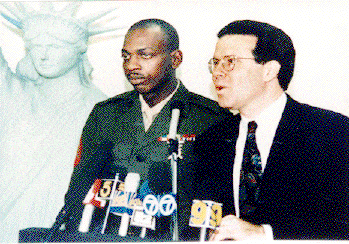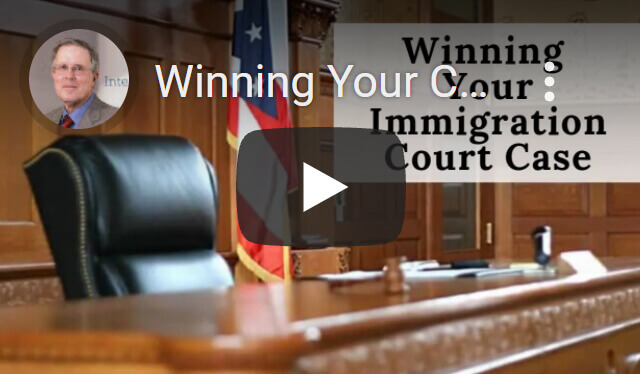Q1. Does the NIW physician law apply only to J-1 physicians who have received “interested government agency” waivers?
A1. No, the law includes not only J-1 physicians, but also H-1B and other physicians who have never been J-1 visaholders. Some of these physicians are International Medical Graduates (IMG’s) while others were educated in either Canada or the U.S.
Q2. What government agencies may provide letters that a physician’s employment is in the public interest?
A2. The range of government agencies here is far greater than those which can sponsor a physician for a J waiver. Any federal agency can write a “public interest” letter for a physician. In addition, a state department of public health may also write such a letter. Although the law provides that “a department of public health in any state” may write such a letter, INS regulations, published on September 6, 2000, prohibit a letter written by a city or county department of public health from serving as the basis of granting an NIW.
Q3. Must these letters be approved by the USIA (now part of the State Department)?
A3. No. The letters are included in the NIW petition which is decided by the INS.
Q4. May the INS refuse my NIW application?
A4. If you satisfy the legal criteria in the new law for a NIW, the law provides that the INS “shall” grant your NIW petition.
Q5. Must my employer sponsor me for an NIW, or may I “self-petition”?
A5. As with any other NIW application, you may self-petition.
Q6. When is the earliest time that I can submit an NIW petition to the INS?
A6. You have been able to do so since the President signed the new law on November 12, 1999.
Q7. When is the earliest time that I may submit an application for adjustment of status?
A7. You may apply for adjustment of status to permanent resident as soon as your NIW petition is approved assuming that your priority date is current. In addition, your spouse and children may also submit applications for adjustment of status simultaneously with you. Each member of your family may, if qualified, also submit an application for an Employment Authorization Document (use form I-765) and for a Travel Permit also known as an “advance parole” (use form I-131).
This a distinct improvement over the situation which existed prior to the enactment of the new law where the physician had H-1B status while his/her family members were forced to remain in nonworking H-4 status for a minimum of three years.
Q8. When can my family and I become permanent residents?
A8. After you have been employed in a area designated as medically underserved or by the VA for five years, your Application for Adjustment of Status to Permanent Resident may be approved.
Q9. What if a I submitted an NIW petition prior to November 1, 1998 which was later denied?
A9. You can request that the INS, on their own motion, reopen and reconsider your NIW petition. When the NIW petition is approved, you will be grandfathered into the three-year employment requirement rather than the new five-year requirement. Remember, however, that it may take you another two years to adjust to permanent resident.
Q10. Would I be subject to the three-year rather than the five-year requirement if I qualify for permanent residence on a basis other than a national interest waiver?
A10. Yes. The three-year requirement applies to relieve J physicians on the two-year home residency requirement. If you are/were a J physician and you immigrate based on a labor certification, marriage to a U.S. citizen, through his spouse’s application for permanent residence, the visa lottery, etc. or by any method other than an NIW, you are not subject to the five-year requirement. However, if you plan to immigrate through a labor certification, you must remain employed with your sponsoring employer during the period that your application for adjustment of status is pending and a reasonable time thereafter.
Client Reviews

Know Their Job Well And Perform It Flawlessly
“Don't do the mistake we did and try to save few bucks going with nonprofessionals and sole practitioners! It will end up not only costing you much more in the long run, but also putting your status in jeopardy which can have a priceless impact. It is one of the most important steps in your life.”
Zoom Consultations Available!
Decades of Immigration Experience Working for You
What Can We Help You With - Videos
Carl Shusterman
Immigration Attorney Carl Shusterman has 40+ years of experience. He served as an attorney for the U.S. Immigration and Naturalization Service (INS) from 1976 until 1982, when he entered private practice. He has testified as an expert witness before the US Senate Immigration Subcommittee. Carl was featured in SuperLawyers Magazine. Today, he serves as Of Counsel to JR Immigration Law Firm.







